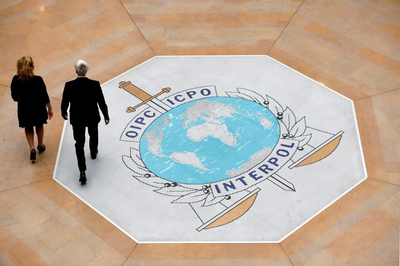
Summary**
In a major crackdown on cybercrime, Interpol has arrested 1,006 suspects across 19 African countries. The two-month operation, dubbed "Serengeti," targeted individuals involved in ransomware, business email compromise, digital extortion, and online scams, resulting in significant financial losses and damages.
Introduction
The increasing sophistication of cybercrime attacks is a serious concern globally. Africa has not been immune to this threat, with numerous cases of cybercrime reported across the continent. In a bid to combat this menace, Interpol launched Operation Serengeti, a joint operation with Afripol, the African Union's police agency.
Body
###
Cybercrime on the Rise in Africa
Operation Serengeti was designed to target individuals involved in various forms of cybercrime, including ransomware, business email compromise, digital extortion, and online scams. The operation was a massive success, with 1,006 suspects arrested across 19 African countries.
The operation's results were a stark contrast to previous years' operations in Africa, which had only led to 25 arrests over the past two years. According to Interpol, the significant progress made during Operation Serengeti was due to participating countries enhancing their ability to work with intelligence and produce meaningful results.
###
Significant Financial Losses
The operation resulted in the identification of 35,000 victims, with cases linked to nearly $193 million in financial losses worldwide. The impact of cybercrime on individuals and communities is severe, with many victims experiencing significant financial loss.
In some instances, the financial losses were staggering. In Kenya, for example, police made nearly two dozen arrests in an online credit card fraud case linked to losses of $8.6 million. In Senegal, officers arrested eight people, including five Chinese nationals, for a $6 million online Ponzi scheme.
###
Emerging Threats
The success of Operation Serengeti has highlighted the need for continued vigilance against emerging threats like Artificial Intelligence-driven malware and advanced cyberattack techniques. Afripol's Executive Director, Jalel Chelba, noted that the agency's focus now includes addressing these emerging threats to stay ahead of cybercriminals.
###
Dismantling Destructive Networks
The operation also led to the dismantling of several destructive networks, including a group in Cameroon suspected of using a multi-level marketing scam for human trafficking. An international criminal group in Angola running an illegal virtual casino and a cryptocurrency investment scam in Nigeria were also targeted.
### **Interpol's Role**
As the world's biggest police organization, Interpol plays a critical role in combating cybercrime globally. The agency works with national police forces to communicate with each other and track suspects and criminals involved in various crimes, including counterterrorism, financial crime, child pornography, cybercrime, and organized crime.
However, Interpol has been grappling with new challenges, including a growing caseload of cybercrime and child sex abuse, as well as increasing divisions among its member countries. The agency's budget is also a concern, with a total budget of about 176 million euros last year, compared to more than 200 million euros at the European Union's police agency, Europol.
Conclusion
The success of Operation Serengeti highlights the need for continued cooperation and collaboration among law enforcement agencies globally. As cybercrime continues to evolve and become increasingly sophisticated, it is crucial that organizations like Interpol remain vigilant and adapt to new challenges.
In a bid to stay ahead of cybercriminals, Interpol must continue to invest in emerging technologies and enhance its capabilities to address the evolving threat landscape. The success of Operation Serengeti serves as a reminder that collective action can lead to significant progress in combating cybercrime and protecting individuals and communities worldwide.
**


